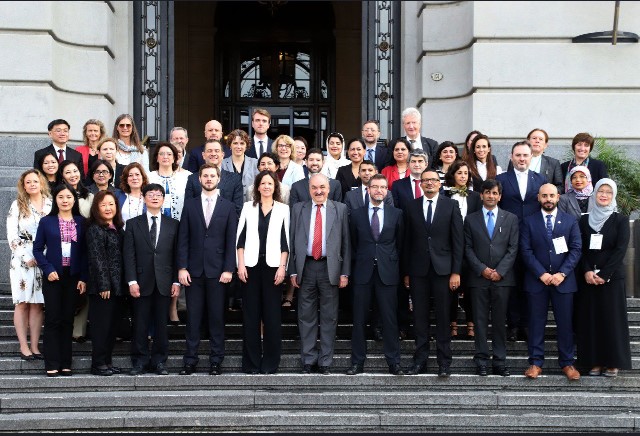The G-20 and the G-7: Education Diplomacy on the Global Stage


In 2017, Nicole Goldin of the Diplomatic Courier declared Education Diplomacy “an idea whose time has come.” With the Argentinian presidency of the G-20 declaring education a key priority and creating an Education Working Group, the G-20 Development Working Group setting Early Childhood Development (ECD) as a priority, and the G-7 pledging $2.9 million for girls’ education, 2018 might well be the year when Education Diplomacy has arrived. Education Diplomacy is a set of processes, practices, and skills that state and non-state actors can draw upon to successfully build trust, negotiate agreements, create consensus, and lead transformational change in education globally and locally. It occurs in the context of the global education ecosystem and works within the available spaces for engagement while also creating opportunities for all key stakeholders to have a place at the table.
The G-20 working groups are primarily made up of official delegations of member states and international organizations, state and multilateral actors that have traditionally occupied those spaces. However, the G-20 also includes seven “engagement groups,” which meet annually in two-day “summits” that engage non-state actors and result in “high-level” policy papers intended to influence G-20 decision-making. The groups are the Civil 20 for civil society, the Science 20, the Youth 20, L20 for labor, the Women 20, the B20 for businesses, and the Think 20 for knowledge exchange and solutions. While a new “E20” for education would be a welcome addition to the engagement process, considering its centrality in the SDGs adopted in 2015, promoting education will be a key focus in every one of those engagement groups, and Education Diplomacy is key to the successful outcome of those groups in influencing transformational change.
Inclusion of ECD as a key focus in the G-20 Development Working Group, rather than the Education Working Group, recognizes the cross-sectoral nature of education for social and economic progress. Comprehensive ECD requires cooperation among education, health, and other sectors, and much of early childhood education is provided by a diversity of stakeholders—parents and caregivers, public programs, and private programs. Provision of private programs are also diverse—some offered by civil society organizations and some by the business sector.
Education Diplomacy advances quality ECD policy and practice by improving cooperation, coordination, and collaboration across sectors, stakeholders, and cultures through the skills and processes of diplomacy. The growing support for ECD is the result of sustained advocacy by global ECD coalitions, such as ECDAN (the Early Childhood Development Action Network) and its predecessors. Due to their efforts, ECD is one of the targets of SDG4 and a G-20 priority. Through effective Education Diplomacy, those goals will remain at the forefront of the global education agenda while also ensuring that they are turned into action and impact at the local level. ECDAN has already begun a process of creating a clear set of “investment benchmarks for success” for the G-20, inviting its civil society membership to participate in this recommendation process.
Similarly, the G-7 Summit in Quebec earlier this month announced a commitment of over $2.9 billion to girls’ education for girls in crisis situations. This again was the result of over two years of civil society and international organization advocacy in Canada, when it was announced that the G-7 would be held in Quebec. When the pledge was announced, it was unclear where and how the funds would be targeted. Education Diplomacy will help civil society, international organizations, and governments build consensus and take action around these questions. Such involvement takes civil society beyond the usual role of holding the pledging countries accountable to their commitments through advocacy, as they engage in the negotiating process, bring the key stakeholders to the table, and lead the implementation process with foresight and cultural competence.
The space for Education Diplomacy needs to be claimed by practitioners skilled in the practice and conscious of the need for ongoing diplomatic engagement by both state and non-state actors in the global agenda-setting process and in the local implementation process. Education has become the talk of the global community over the past few years, from the establishment of the Education Cannot Wait Fund, to the high-level engagement in the Global Partnership for Education’s replenishment conference in Senegal, to the Global Education & Skills Forum, and now with the G-20 priorities and G-7 announcement. Education Diplomacy will keep us all talking about education and help us lead this talk into true transformational change for learners everywhere.
Phoebe Farag Mikhail is a consultant for the Center for Education Diplomacy, a program of the Association for Childhood Education International (ACEI), and an instructor on Education Diplomacy for the DiploFoundation.